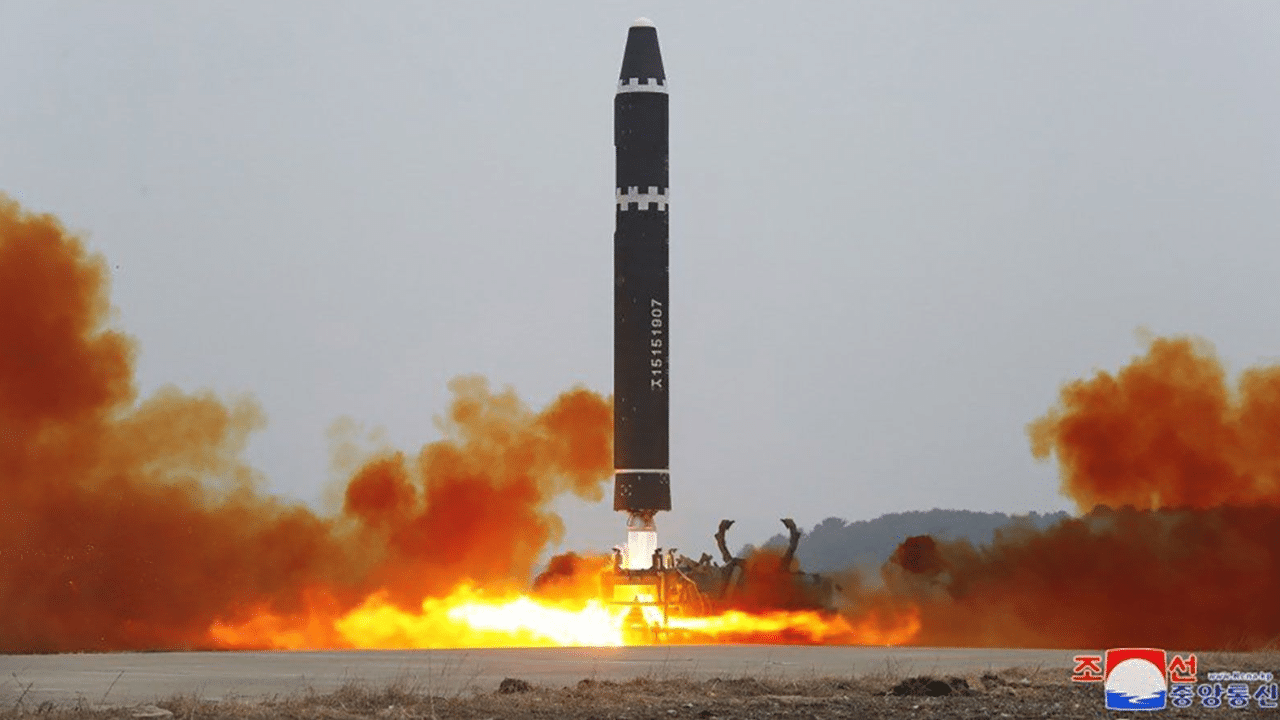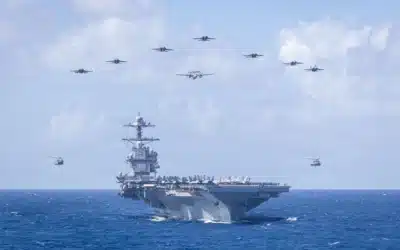Washington, Seoul, and Tokyo held joint naval drills testing missile defense in international waters between Japan and South Korea on Sunday. Following Pyongyang’s latest intercontinental ballistic missile (ICBM) launch, an envoy from the Democratic People’s Republic of Korea (DPRK) spoke before the UN Security Council days earlier. He defended his government’s actions as a response to various military provocations by Washington and its allies.
South Korea’s Navy portrayed Sunday’s drills as an opportunity to “improve security cooperation” with Japan as well as the United States in the face of “North Korea’s nuclear and missile threats.” The missile defense exercises saw the participation of American, South Korean, and Japanese destroyers equipped with Aegis radar systems.
On Wednesday, North Korea fired its latest Hwasong-18 missile – which Pyongyang claims to be the focal point of its nuclear strike force – off its east coast as a “strong practical warning” to the US, South Korea, and Japan.
The three countries formed a trilateral military pact last year – eyeing North Korea and China – which Pyongyang perceives as an “Asian version of NATO.” Washington, Seoul, and Tokyo have additionally carried out myriad war games aimed at the DPRK this year.
After the ICBM test, North Korea’s fourth such launch this year, an emergency meeting of the UN Security Council was held on Thursday. The US Ambassador Jeffrey DeLaurentis, acting deputy representative to the United Nations, read from a joint statement of ten member governments censuring the DPRK’s missile launch “in the strongest possible terms.”
Reading from the statement, DeLaurentis declared “we must send a clear and collective signal to the DPRK – and all proliferators – that this behavior is unlawful, destabilizing, and will not be normalized.”
However, on a yearly basis, Washington provides billions in military aid to apartheid Israel which maintains a clandestine nuclear weapons program. Over the past decades, the US government has spent hundreds of billions in taxpayer money supporting the Israeli government. Although, Tel Aviv’s open-secret nuclear arsenal, which is thought to contain hundreds of warheads, makes this bipartisan policy technically illegal per US foreign assistance laws.
Last month, it was revealed that the US intelligence community has concluded Pyongyang will continue to use its “nuclear weapons status” only as a way of coercively accomplishing some political and diplomatic objectives, not for offensive military purposes.
North Korea’s envoy Kim Song, the first DPRK representative to appear before the Security Council in six years, described Pyongyang’s test-fire this week as a necessary response to recent escalations by hostile forces. “How can the deployment of nuclear assets, joint military exercises and aerial espionage acts by the United States contribute to peace and stability on the Korean Peninsula?” Kim asked.
Pyongyang’s envoy cited US spy planes flying in the DPRK’s exclusive economic zone, the docking in Busan of a nuclear-powered US cruise missile submarine, as well as the upcoming deployment in South Korea of an American nuclear-armed ballistic missile submarine. The White House deployed armed Reaper drones, aircraft carriers, as well as nuclear capable bombers to the peninsula for use during several war games this year.
Under the Joe Biden administration, massive joint US-South Korean live fire war games have resumed and since 2022, in response, the DPRK has launched more than 100 missiles.
Despite criticism from DeLaurentis, Moscow and Beijing opposed any proposed actions by the Security Council and instead highlighted Washington’s role as a destabilizer. Zhang Jun, China’s UN ambassador, said the US and its allies remain “obsessed with sanctions and pressure, which has caused the DPRK to face huge security threats and pressure to survive.”
Zhang implored Washington to “propose practical solutions, take meaningful actions [and] respond to the legitimate concerns of the DPRK.” Biden has taken a vastly more bellicose policy than Donald Trump regarding the DPRK. During the final half of the Trump administration, war games had been rolled back, dialog was opened, and all sides reduced weapons tests.
As crippling sanctions are indefinitely imposed, Biden refuses to offer Pyongyang an off ramp. The White House is demanding the North’s complete disarmament and denuclearization. Meanwhile, Pyongyang continues countering the myriad regime change rehearsals taking place on the DPRK’s doorstep, while US officials periodically threaten the country with obliteration.

































